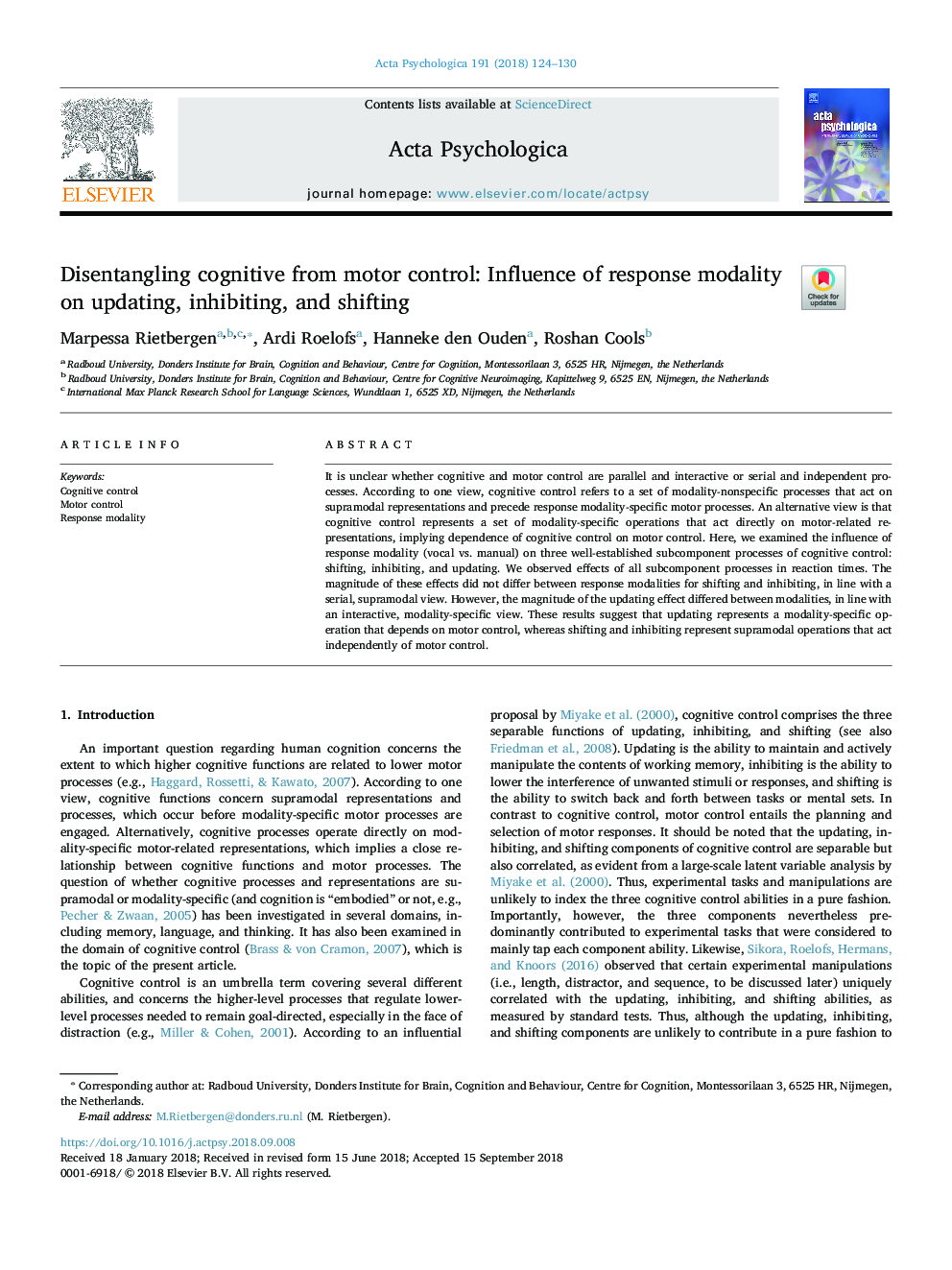| Article ID | Journal | Published Year | Pages | File Type |
|---|---|---|---|---|
| 11029811 | Acta Psychologica | 2018 | 7 Pages |
Abstract
It is unclear whether cognitive and motor control are parallel and interactive or serial and independent processes. According to one view, cognitive control refers to a set of modality-nonspecific processes that act on supramodal representations and precede response modality-specific motor processes. An alternative view is that cognitive control represents a set of modality-specific operations that act directly on motor-related representations, implying dependence of cognitive control on motor control. Here, we examined the influence of response modality (vocal vs. manual) on three well-established subcomponent processes of cognitive control: shifting, inhibiting, and updating. We observed effects of all subcomponent processes in reaction times. The magnitude of these effects did not differ between response modalities for shifting and inhibiting, in line with a serial, supramodal view. However, the magnitude of the updating effect differed between modalities, in line with an interactive, modality-specific view. These results suggest that updating represents a modality-specific operation that depends on motor control, whereas shifting and inhibiting represent supramodal operations that act independently of motor control.
Keywords
Related Topics
Life Sciences
Neuroscience
Cognitive Neuroscience
Authors
Marpessa Rietbergen, Ardi Roelofs, Hanneke den Ouden, Roshan Cools,
